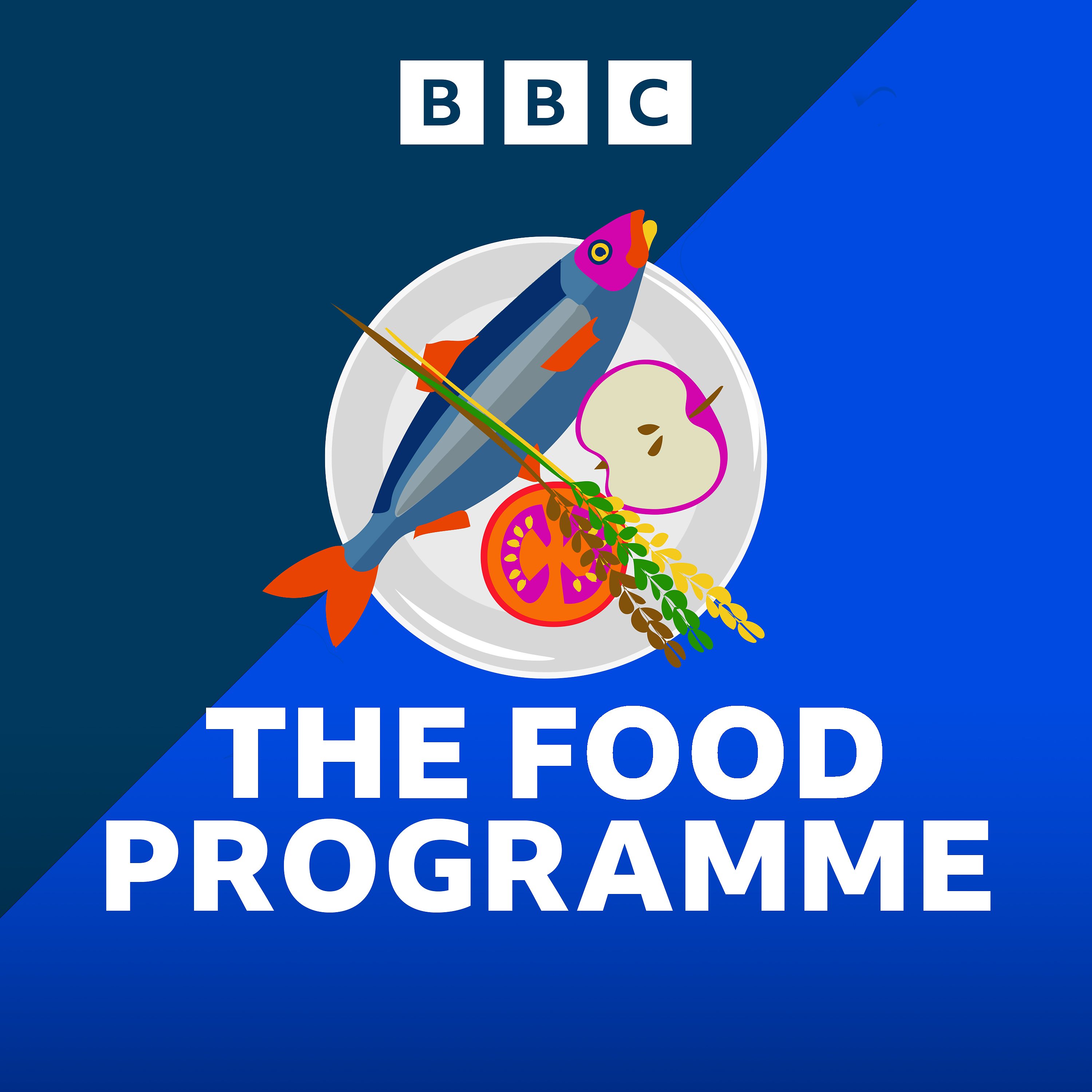

The Food Programme
BBC Radio 4
Investigating every aspect of the food we eat
Episodes
Mentioned books

Jan 23, 2012 • 28min
Generation Food
Generation Food. The Food Programme hears from the people coming up with new ideas and fresh thinking about how and where we produce food for the UK's future.From computer programmers creating networks for people trading food locally through to community supported market gardens, Sheila Dillon finds out how a new generation is coming up with radical models for growing, buying and selling food. Producer: Dan Saladino.

Jan 16, 2012 • 28min
London 2012, Coke and McDonalds
Food and the Olympics. Guest presenter John Inverdale looks ahead to London 2012 and explores the history of food and athletics from the first London Games of 1948.Presenter: John Inverdale
Producer: Maggie Ayre.

Jan 9, 2012 • 28min
Food Stories: What Happened Next?
Sheila Dillon reports on the major developments in the big food stories of 2011.Producer: Rich Ward.

Jan 1, 2012 • 28min
New Year's Food Quiz
Tim Hayward and The Food Quiz team juggle more food history, trivia and recipe knowledge in pursuit of fun and gastronomic curiosity.Recorded in front of a live audience at The Abergavenny Food Festival this special edition of the Radio 4 Food Quiz features panellists comedian Chris Neill, food writer Richard Johnson, television presenter Gizzi Erskine and restaurant insider Thomas Blythe.This week's quiz categories include, "beer or racehorse" and "what's cookin'" as well as more from inside "the museum of brands". Producer: Dan Saladino.

Dec 25, 2011 • 28min
The Food Quiz
Nowhere else will you find a programme that juggles Elvis Presley's culinary history, questions over the origins of a 1970's crisp brand, references to Elizabeth David and some of the world's most unusual food sounds. Food writer Tim Hayward performs this feat in a special Christmas Day edition of The Food Quiz. Panellists Allegra McEvady, Richard Johnson and Chris Neill pit their gastronomic knowledge, grasp of food trivia and culinary history against each other. Categories include the devious "Into the Museum of Brands", a cult cookbook round as well as "What's Cookin'?" in which the teams have to identify a classic dish from the archives.Producer: Dan Saladino.

Dec 19, 2011 • 28min
Gin and Botanicals
Dan Saladino explores the past, present and future of the most British of drinks, gin. And hears how a new generation of distillers is testing the boundaries of an old and familiar flavour. For decades vodka was the spirit of choice, not just for James Bond, but also for bartenders and mixologists (a recent term for the people who develop new drink recipes and cocktails). But more recently people have been reaching out for more interesting and complex flavours to replace the neutral taste of vodka. Gin was perfect.From as far back as the 12th century apothecaries had used juniper and its coniferous flavours in spirits to heal and revive. By the 17th century the Dutch had given us Geneva or Holland Gin, a rough, whisky like spirit with juniper at its base. As distilling techniques developed in the 19th century it became the refined gin we know today with juniper flavours being delicately mixed with botanicals like coriander, cinnamon, ginger and Orris.It's the challenge of blending and experimenting with these flavours that has attracted a new generation of gin distillers. Dan Saladino explains the history that has made this 21st century gin craze possible and finds out what is now drawing people to what was once Britain's most notorious drink.Producer: Dan Saladino.

Dec 12, 2011 • 28min
The Price of Food
Dan Saladino exlores how higher food prices are changing what we buy and how we eat. From increases in food related crime to shortages of ingredients, what else is in store?

Dec 5, 2011 • 28min
Britain's best food markets
Sheila Dillon talks to Food Award judges Jeremy Lee and Kath Dalmeny about some of the exciting grassroots developments in local markets around the country, focusing on the three outstanding examples of community food retailing which are transforming their communities in different and imaginative ways.

Nov 28, 2011 • 28min
Britain's best food producers
Sheila Dillon reports on the winners and finalists of The BBC Food & Farming Awards 2011.

Nov 21, 2011 • 27min
A Special (Food) Relationship
Mark Bittman is a high-profile figure in the United States. He's the chief food writer for the New York Times, a broadcaster, and a bestselling author.Keen to understand the differences between the British and American food systems, one day he made a call out of the blue to Sheila Dillon. Once in London, he fixed up meetings with Jamie Oliver, Hugh Fearnley-Whittingstall and Arthur Potts Dawson.The Food Programme joins Mark on his personal journey into the world of the campaigning chef.Produced by Rich Ward.


